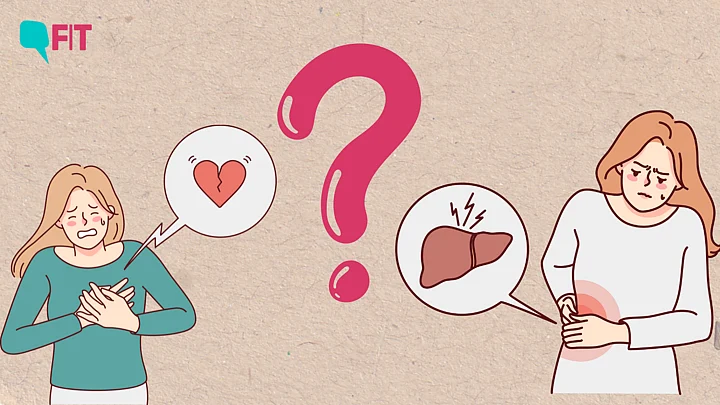Liver diseases, even in early stages, can impact your heart health, found a new study published in the Frontiers in Cardiovascular Medicine journal by researchers at the Smidt Heart Institute at Cedars-Sinai.
What should you know? FIT tells you.
The big reveal: The researchers found that increased FIB-4 scores in a person, which indicate liver fibrosis or severe liver disease, are also associated with heart abnormalities.
What are experts saying: Alan Kwan, the lead author of the study, said that while it was already known that nonalcoholic fatty liver diseases were linked to cardiovascular deaths, not much was known to understand the relation between them apart from common risk factors.
The American Heart Association had also previously stated that people diagnosed with nonalcoholic fatty liver disease often die due to heart issues.
Kwan said,
“If 25% of the population has this potential risk factor for cardiac disease, we knew we needed to understand it more fully. So, our overall aim with this study was to examine the connections between the heart and the liver--a newer area of study, but one that made sense to explore further. The liver processes cholesterol and produces factors involved in blood clotting and inflammation--all of which can affect the heart--so we wanted to take a closer look at these associations.”
The methodology used: Electronic medical records of 1,668 patients for the past 11 years were reviewed by the researchers. These were patients with low, moderate, or high FIB-4 scores within the time frame of a year after having a cardiac MRI. The study found that at least one heart abnormality was observed in 86 percent patients.
More importantly:
“The abnormalities we saw were vascular changes - enlargement of the blood vessels coming out of the heart as well as an increase in how much blood was moving. Typically, when physicians examine the heart, we aren't thinking about the liver and vice versa. We tend to be very specialized in our own organ categories. But this study's findings indicate that we can and should screen for liver conditions when looking at heart conditions - we can't view the heart and the liver as completely separate organs functioning on their own islands.”
What next? It remains to be explored to what extent liver diseases can impact heart health, and whether doctors should assess for liver diseases when someone comes in with a heart condition or vice versa.
(At The Quint, we question everything. Play an active role in shaping our journalism by becoming a member today.)
